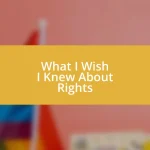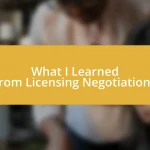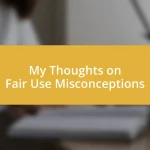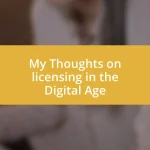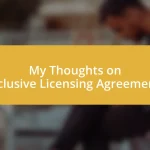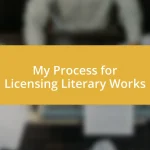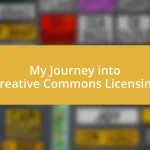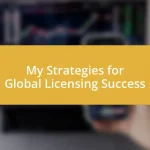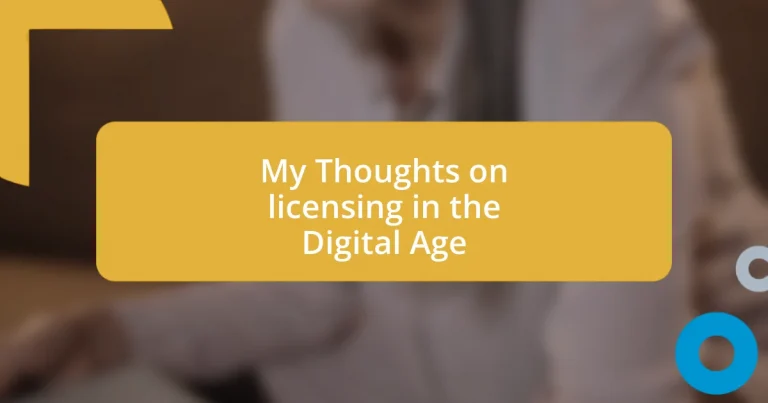Key takeaways:
- Understanding licensing is essential for creators to protect their rights and foster collaboration, enhancing professionalism in digital spaces.
- Challenges in digital licensing include complex agreements, rapid legal changes, and limited awareness among creators about their rights and licensing options.
- Emerging trends like user-generated content, blockchain technology, and sustainable practices are reshaping digital licensing, offering creators more control and security over their work.
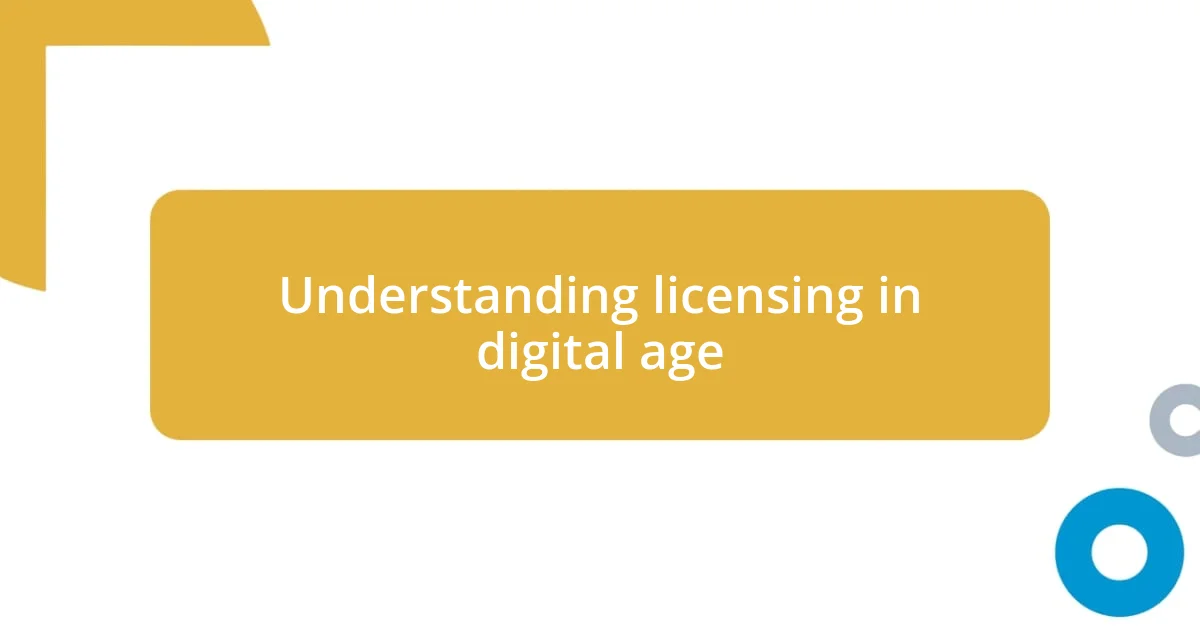
Understanding licensing in digital age
Licensing in the digital age poses unique challenges, and I often find myself reflecting on the balance between creativity and ownership. For instance, I remember the thrill of sharing my art online, only to realize later that licensing terms could strip away my rights. Isn’t it baffling how a simple click can lead to complex legal entanglements?
As creators navigate this digital landscape, it’s essential to understand the different kinds of licenses available. Personally, I’ve experimented with Creative Commons licenses, which allow for sharing while retaining some rights. But it makes me wonder, how many people truly grasp what these terms mean before publishing their work?
I also think about the emotional aspect of licensing – the fear of having your work misused or the joy of collaboration. Reflecting on my own experiences, I’ve learned that transparency in licensing can foster trust within the community. Ultimately, isn’t it worth taking the time to understand these agreements to protect what we’ve worked so hard to create?
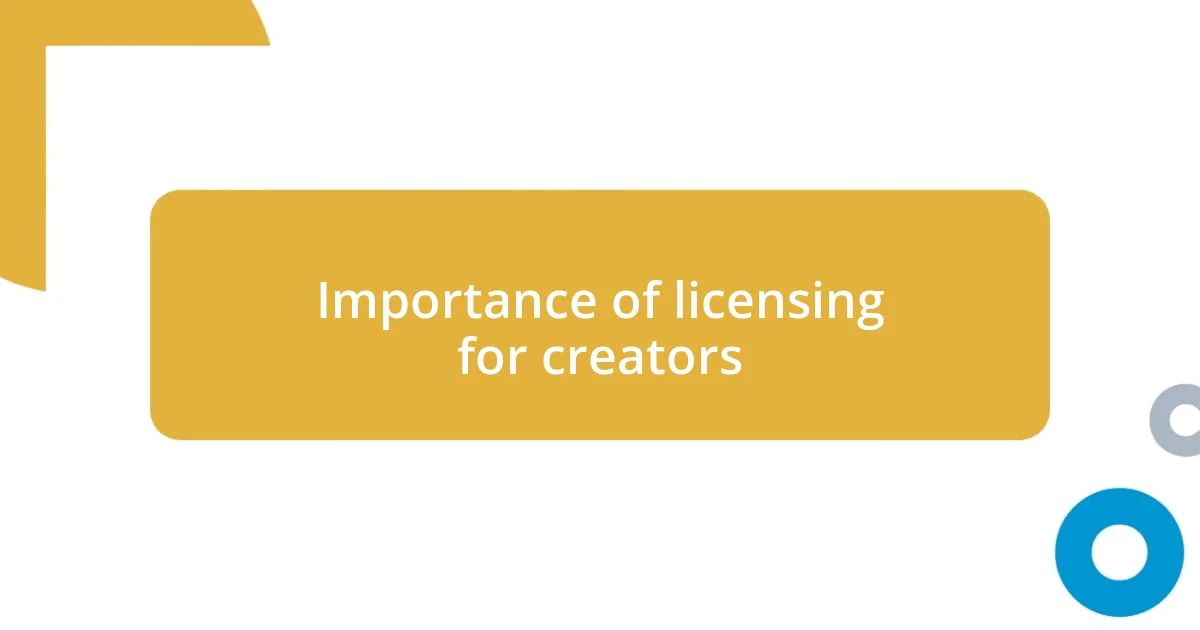
Importance of licensing for creators
Understanding licensing is crucial for creators in the digital realm because it offers a layer of protection for their work. I remember when I first shared my music online; I was excited, but I also felt a knot in my stomach about how it could be used without my consent. Realizing the importance of having a clear license made it easier to share my creations confidently while safeguarding my rights.
Licensing not only protects creators but also enhances their professional credibility. For example, when I began collaborating with other artists, I was impressed by how a solid licensing agreement set the tone for our partnership. It clarified expectations and allowed us to focus on creativity instead of worrying about potential disputes. Isn’t it interesting how a well-structured license can open doors for collaboration?
Moreover, educational aspects of licensing should not be overlooked. I often find myself demystifying terms for fellow creators in workshops. The more I explain the different licensing options, like exclusivity versus non-exclusivity, the more I realize that understanding these concepts can empower creators. By equipping ourselves with this knowledge, we not only protect our work but also contribute to a healthier creative environment.
| Aspect | Importance |
|---|---|
| Protection | Safeguards creators’ rights against unauthorized use |
| Professional Credibility | Establishes trust and fosters collaboration |
| Educational Value | Empowers creators to make informed decisions about their work |
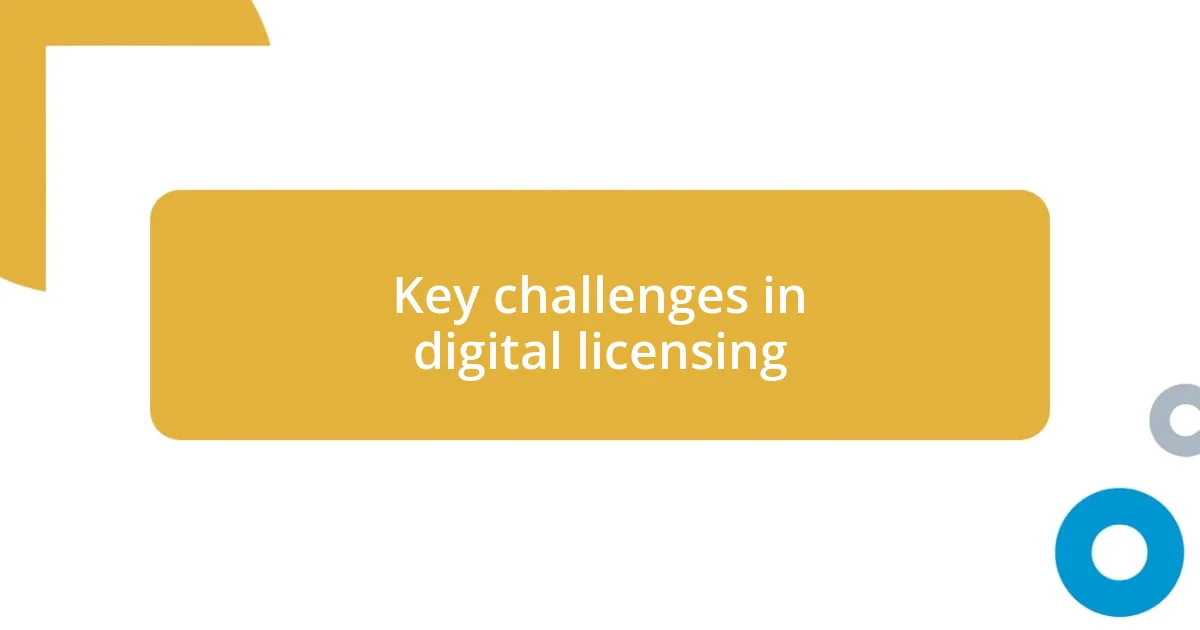
Key challenges in digital licensing
One of the biggest challenges in digital licensing is the complexity of agreements. I’ll never forget the moment I signed a licensing deal for a photo I shared online. The fine print was overwhelming, and I didn’t fully understand the implications. It’s easy to feel lost in the jargon and legalese, especially when the stakes are high. Many creators, like I once was, might inadvertently surrender their rights without realizing it.
- Ambiguity in Terms: Vague wording can lead to misunderstandings about ownership and usage rights.
- Rapidly Changing Regulations: Digital laws evolve quickly, leaving creators struggling to keep pace.
- Global Reach: Licensing can get complicated when work is shared across different countries with different laws.
- Limited Awareness: Many creators are unaware of their rights and what various license types entail.
Moreover, there’s an emotional toll that stems from the fear of misuse. I remember when I discovered my artwork was being used by someone else without my permission. It felt like an invasion of my creative space. The sense of violation was real, and it taught me that awareness and vigilance are critical. The digital landscape can foster beautiful connections, but it also demands that we remain proactive in protecting our creations.
- Trust Issues: Fear of exploitation leads to hesitance in sharing work.
- Emotional Drain: Handling disputes can be exhausting, both mentally and emotionally.
- Community Responsibility: There’s a collective need for educators to guide newer creators about their licensing options.
- Fear of Collaboration: Many artists hesitate to work together due to fears about rights being compromised.
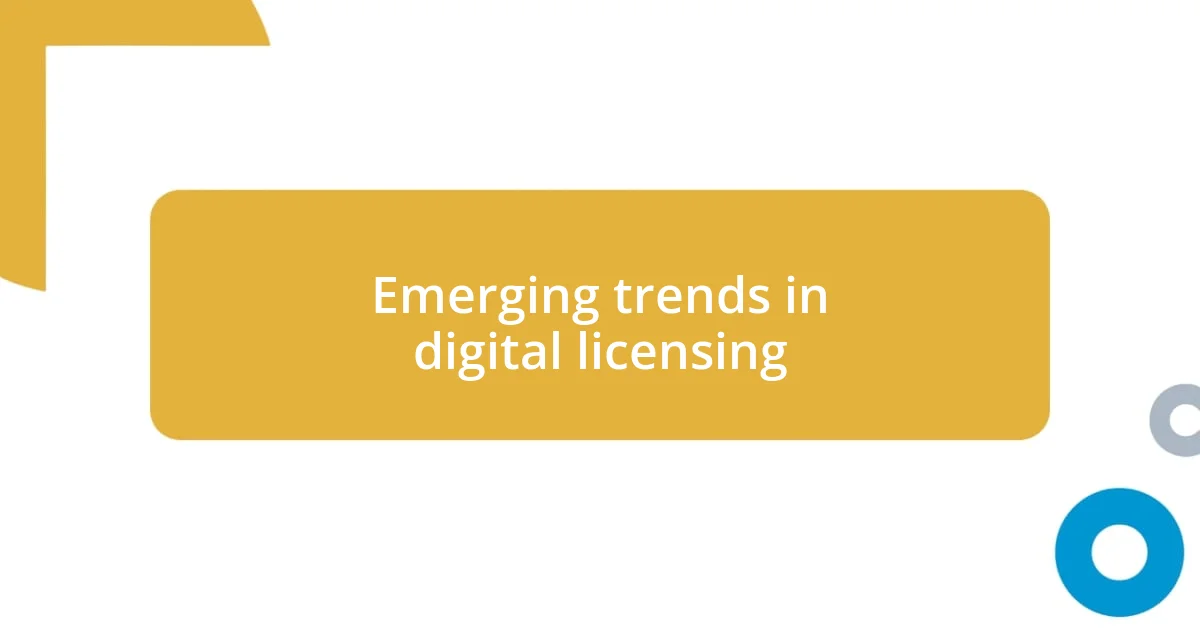
Emerging trends in digital licensing
As I dive into the world of digital licensing, I can’t help but notice a significant shift towards user-generated content (UGC) and its licensing. It’s fascinating how platforms are now incentivizing creators to share their work through collaborative licenses that directly benefit both parties. I remember when I participated in a UGC campaign; my content was not only showcased but also came with a transparent agreement that outlined how my work would be used. Isn’t it encouraging to see this trend where creators can share freely yet retain ownership of their contributions?
Another emerging trend I’ve observed is the growth of blockchain technology in licensing. This innovative approach provides a tamper-proof method of managing copyrights and licenses. I recall feeling a sense of relief when I learned about smart contracts, which automatically enforce licensing terms. It made me think: could this technology drastically reduce disputes over ownership? I believe it’s a game-changer for creators who want to feel secure in their digital transactions.
Finally, I’m intrigued by the increasing emphasis on sustainability in digital licensing practices. Creators are becoming more acutely aware of the environmental impact of their work, and many are opting for eco-friendly licensing solutions. I’ve even chatted with a few artists who are passionate about minimizing digital waste. Have you considered how your licensing choices might affect the planet? By consciously choosing sustainable practices, we not only protect our rights but also contribute to a healthier environment for future creators.
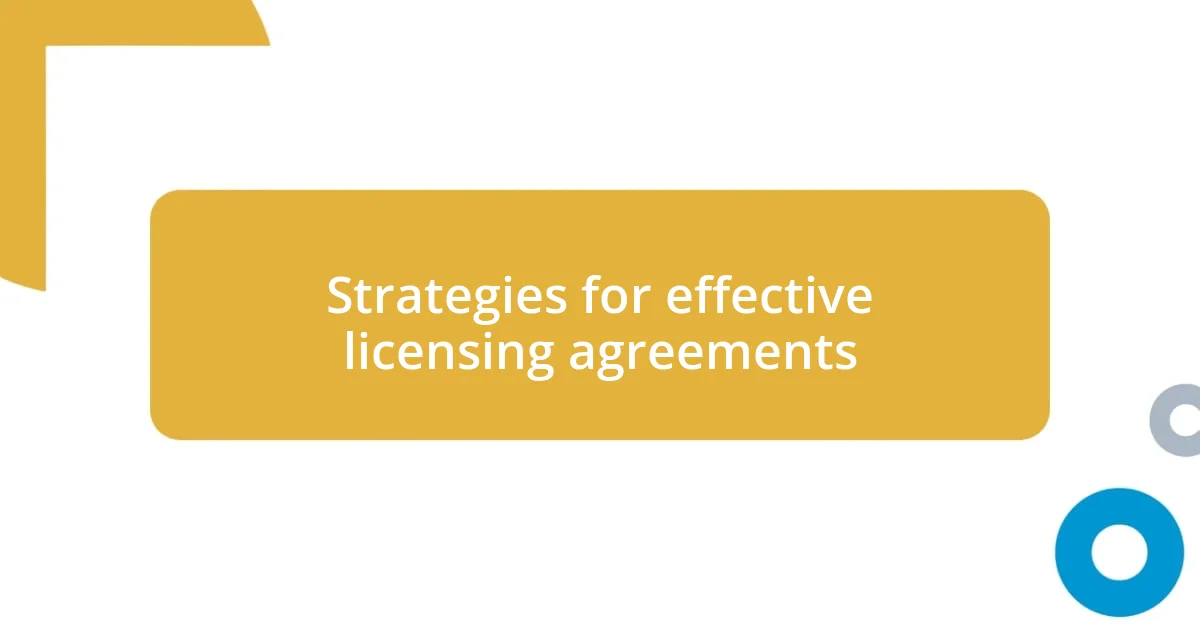
Strategies for effective licensing agreements
When negotiating licensing agreements, clarity is key. In my experience, I often found that taking the time to draft precise terms can prevent a slew of misunderstandings down the line. If something is vague, like saying “limited use,” it can leave room for interpretation that could come back to bite you later. Remember, what seems clear to you now could be seen differently by someone else.
One effective strategy I discovered is to invite open dialogue with the other party. I once had a consultation where every key aspect of the agreement was discussed thoroughly. This created a comfortable environment where questions flew freely, ensuring all parties were on the same page. Have you ever felt anxious about entering a deal? I can relate; that conversation turned my nerves into empowerment, making me feel secure in the agreement.
I also recommend considering a trial period for the license. This idea struck me while working with a platform that proposed a short-term licensing deal first. It was a revealing experience; I quickly understood what worked and what didn’t. The mutual feedback helped us refine the terms, ultimately leading to a stronger long-term agreement. Isn’t it fascinating how a little experimentation can enhance your confidence and clarify expectations?

